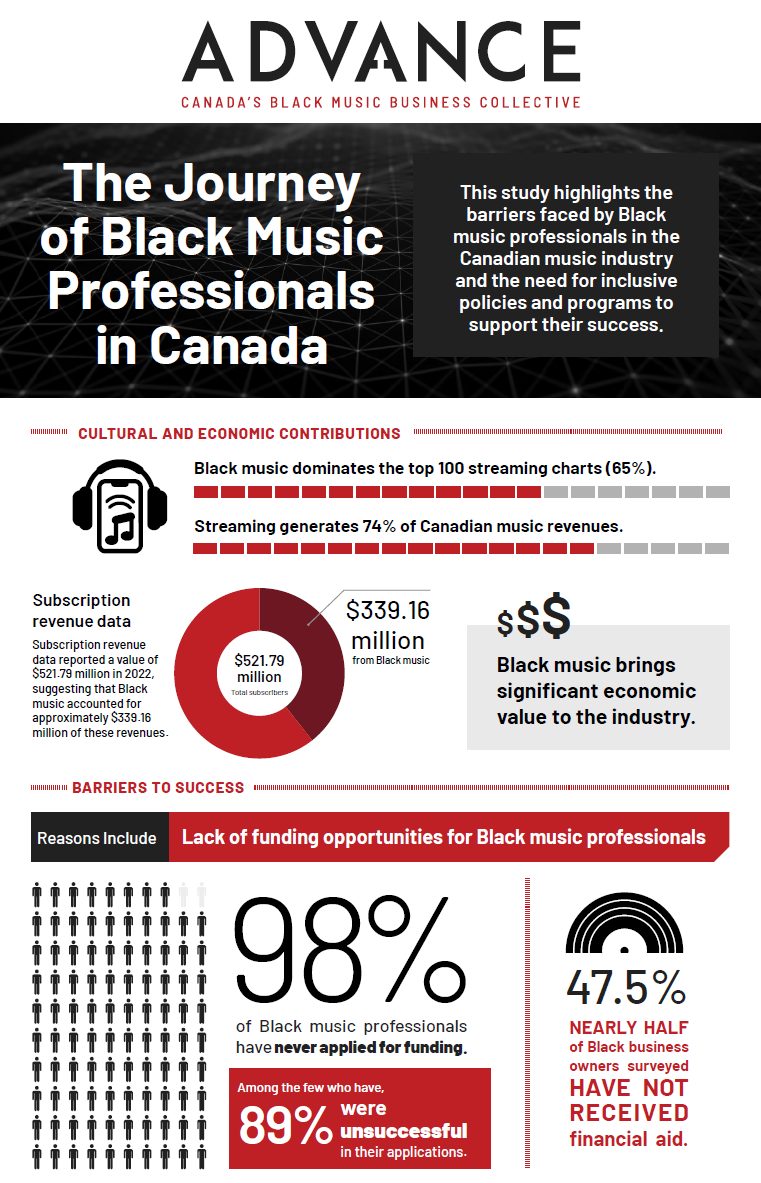Industry Analysis and the Value of Black Music
Canada | 2024
Black music’s economic and social value has consistently proven to be a driving force in Canada’s music industry. Black music generates significant revenue through record sales, streaming services, live performances and more. Beyond music, the economic impact is evident in fashion, advertising and film, with collaborations between Black musicians and major brands enhancing profitability for both. Additionally, Black music’s global appeal promotes cultural tourism, contributing to the global economy and cultural enrichment. Despite this, Black musicians and industry professionals face systemic racism and underrepresentation. Using a societal and organizational lens, this report discusses the inequalities and prejudices faced by Black music industry workers and musicians offering critical recommendations to address disparities.
Findings and Recommendations
At the societal level, Black musicians and industry professionals face challenges rooted in policies, legislation, culture, media, social norms and systemic and historical inequities. In Canada, this is evident in Black musicians being underrepresented in the industry, stereotypes of Hip Hop culture to violence,
under-compensation, appropriation of works, and a lack of support. Due to the Black Lives Matter movement, there has been increased awareness of systemic racism, including in the music industry. For instance, the City of Toronto, the Slaight Family Foundation, and ADVANCE, Canada’s Black Music Business Collective (ADVANCE), have collaborated to pledge over $2 million in investments to support the entry, retention, and advancement of Black professionals in Toronto’s music industry.
At the organizational level, Black musicians and industry professionals are faced with barriers tied to education, media representation, and a lack of Black representation in senior roles. Increased awareness of racial discrimination following George Floyd’s death in 2020 and the wider Black Lives Matter movement prompted organizations to speak out in solidarity with Black people. Nevertheless, these actions have been mainly performative. As music journalist Bianca Gracie aptly observed, “They may be posting these things, but if you look at the [corporate] suite, if you look at the execs, they are predominantly white. So it’s a mismatch of info.”
At the individual level, recent actions against anti-Black racism in Canada’s music industry include panels and roundtables such as the weekly ADVANCE supported Breaking Down Racial Barriers panel focusing on the lived experiences of Black people in the music industry. Yet, in the Canadian context, there is a noticeable lack of data and initiatives addressing racial barriers compared to those focusing on gender equality.

